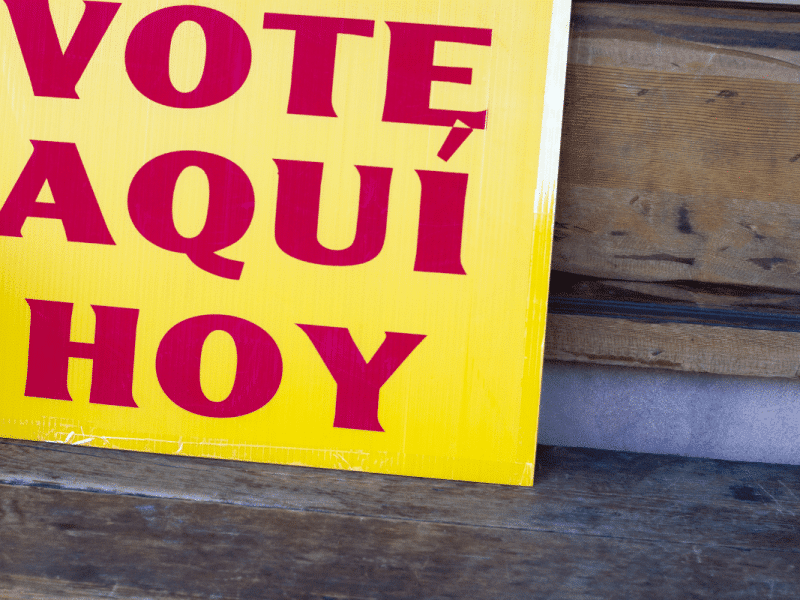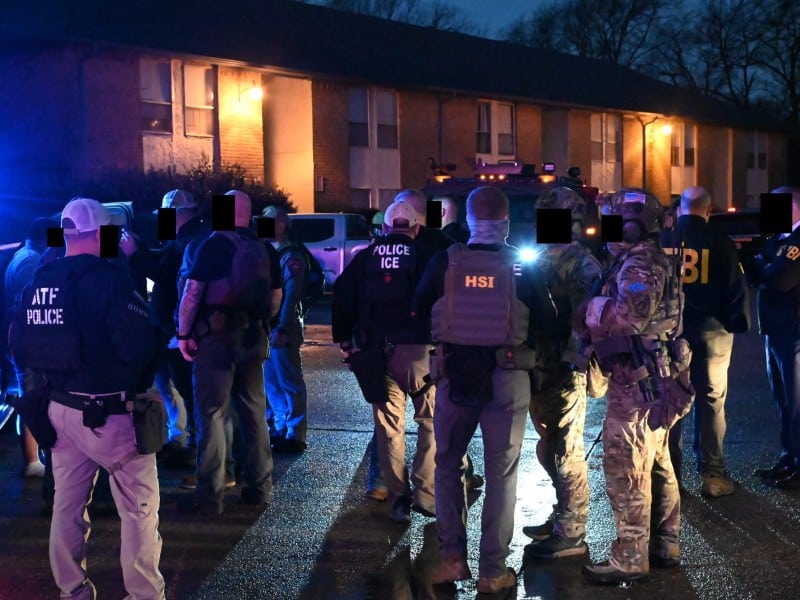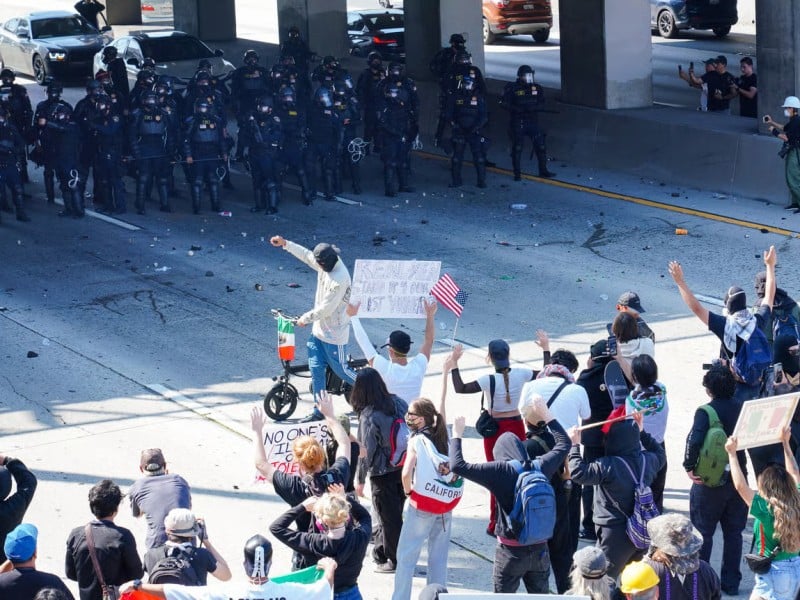Boosting Latino Voter Engagement
Latinos make up 27% of the population in Hampden County—a significant increase of 25% from 2010 to 2020, according to Pew Research. Despite this growth, cities with large Latino populations like Holyoke, Springfield, and Chicopee have some of the lowest voter turnout rates in Massachusetts.

Originally published in The Latino Newsletter–reprinted with permission.
As the 2024 election season unfolds, the Latino Election Project from The Latino Newsletter and New England Public Media features the work of student producers Ian Burger, Halima Mohamed, and Evanni Santos with support from Donyel Le’Noir Felton. The team is reporting on election cycle stories through the lens of the Latino community in western Massachusetts.
This is part two of a five-part series. Part one is here. Part three will focus on newly registered, young Latino voters. Part four will talk with Latino business leaders. The series wraps up with a post-election story.
Latinos make up 27% of the population in Hampden County—a significant increase of 25% from 2010 to 2020, according to Pew Research. Despite this growth, cities with large Latino populations like Holyoke, Springfield, and Chicopee have some of the lowest voter turnout rates in Massachusetts.
Holyoke Mayor Joshua Garcia says part of the challenge is a lack of connection and trust between the Latino community and local leaders.
“When Latinos in particular get into positions of power and people get elected who they trust, that’s when you’re going to start seeing little by little more turnout,” Garcia explained. He believes that a stronger Latino presence in local government could help close this gap and inspire greater voter participation.
Chloe Soto, a top aide to the mayor of Chicopee, noted disparities in education that affect civic knowledge and participation. She explained that some lower-income individuals don’t see the value of their vote because they lack information on its importance.
“We have lower income people who don’t think that their vote is important because they don’t know enough of how important it actually is,” Soto said, underscoring the impact that educational gaps have on civic engagement.
Many Latino residents also face language barriers. Garcia notes that older residents, especially those who have recently arrived from Puerto Rico, often struggle to navigate English-only information.
“They don’t speak the language, they don’t get it. If a voter is much older, doesn’t speak any English whatsoever. Fresh here from the Island of Puerto Rico or from whatever country, really,” he said. Garcia emphasized the need for accessible information, acknowledging that language barriers remain an ongoing challenge for Latino residents in the region.
Despite these obstacles, community leaders believe that trust-building and community outreach can increase Latino voter engagement.
Agma Maria Sweeney, president of the Westfield Puerto Rican Association (WEPRA), encourages Latinos to make their voices heard at the polls. Around 10 percent of Westfield’s population identifies as Latino.
“Vote for the candidate that best represents you, your family and your community. There’s truths and there’s lies in political propagandas and campaigns,” she said.
Desafíos y avances del voto latino
Aunque los latinos representan el 27% de la población en el condado de Hampden y su número ha crecido un 25% entre 2010 y 2020, las ciudades de Holyoke, Springfield y Chicopee, con grandes poblaciones latinas, registran algunos de los niveles de participación electoral más bajos en Massachusetts.
El alcalde de Holyoke, Joshua García, señala que uno de los obstáculos es la falta de conexión y confianza entre la comunidad latina y sus líderes locales.
“Cuando los latinos en particular logran posiciones de poder y se elige a personas en quienes confían, es cuando se empieza a notar, poco a poco, un mayor nivel de participación”, comenta García. Según él, tener más latinos en el gobierno local podría ayudar a fortalecer la representación y motivar una participación electoral más activa.
Chloe Soto, una asesora principal del alcalde de Chicopee, dice que las desigualdades en la educación limitan el conocimiento cívico y la participación de muchos latinos. Añade que algunas personas de bajos ingresos no ven el valor de su voto porque no tienen suficiente información sobre su importancia.
“Tenemos personas de bajos ingresos que no creen que su voto sea importante porque no saben lo suficiente sobre la importancia que realmente tiene”, explica Soto, señalando cómo estas desigualdades educativas afectan la participación cívica.
Muchos residentes latinos también enfrentan barreras de idioma. García menciona que los residentes mayores, especialmente quienes han llegado recientemente de Puerto Rico, a menudo encuentran difícil comprender información que solo está en inglés.
“Si no hablan el idioma, no lo entienden. Si un votante es mayor y no habla nada de inglés, recién llegado de la Isla de Puerto Rico o de cualquier otro país”, dice García. En Holyoke, se han hecho esfuerzos para ofrecer recursos bilingües, pero reconoce que las barreras lingüísticas siguen siendo un reto para la comunidad.
A pesar de estos desafíos, líderes de la comunidad creen que establecer confianza y un acercamiento genuino puede ayudar a aumentar la participación de votantes latinos. Agma María Sweeney, presidenta de la Asociación Puertorriqueña de Westfield (WEPRA), anima a los latinos a que hagan escuchar su voz. Aproximadamente el 10 por ciento de la población de Westfield se identifica como latina.
“Vota por el candidato que mejor represente a tu familia y a tu comunidad. Hay verdades y mentiras en las campañas, pero no dejes que eso te desanime,” dice Sweeney.
Ésta es la segunda entrega de una serie de cinco reportajes de El Proyecto Electoral Latino.
Do you believe in creating new journalism lanes for Latinos and Latinas? Do you believe that U.S. mainstream outlets will never understand our community? Consider donating to The Latino Newsletter. Any little bit helps to keep this newsletter free and accessible to all. ¡Gracias mil!




